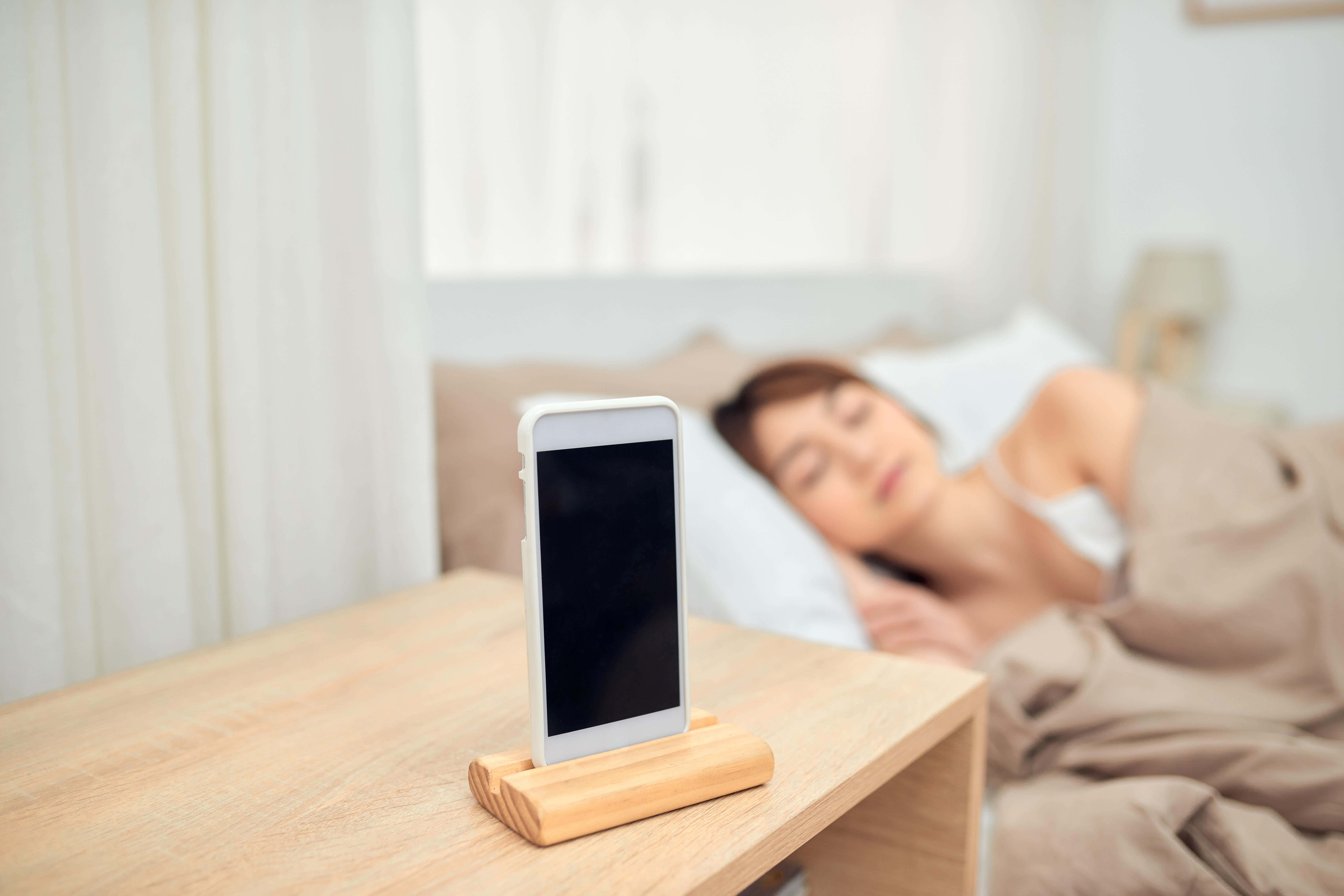Millions of brits scroll online the moment they wake up, data reveals
A third of Brits are planning to reduce their screen time as part of their new year’s resolutions

Britons reach for their mobile phone as soon as they wake up – with spikes in network traffic detected immediately after 6am, 7am and 8am, figures show.
Millions of people pick up their phone on the hour – likely when most alarms are set for – and begin scrolling, Virgin Media O2 data suggests.
A separate survey for the operator found that more than a third of Britons (35 per cent) are planning to reduce their screen time as part of their new year’s resolutions.
The firm said the morning data jumps had emerged as part of its broadband network analysis, which it said was a reliable indicator of the connectivity habits of the British public.
It found three jumps – evident almost immediately following the hours of 6am, 7am and 8am – suggesting people reach for their phones to turn off their alarms and immediately begin scrolling.
Some 81% of Britons said they reached for their phones first thing most days, with 75 per cent immediately checking their social media feeds and more than half (52 per cent) checking news feeds.
A fifth (21 per cent) said they looked at the day’s forecast, while 18 per cent checked for disruptions to their commute.
Some 6 per cent scanned the stock market before they got out of bed.

As well as a third of people looking to reduce their screen time, three quarters said they were hoping to improve their mental health – with a further two thirds (65 per cent) wanting to sleep better.
Half of those polled (49 per cent) admitted to previous unsuccessful attempts to reduce screen time.
Virgin Media O2 said this explained record levels of data consumption and an overall uptick of 8.1 per cent in broadband usage on its network last year.
While three quarters of people said they relied on their screens for everyday tasks, two thirds (65 per cent) are worried they would miss out or be socially disconnected if they cut down their screen time.
Those polled cited social media as the hardest to cut down on (78%), followed by messaging apps (75 per cent) and video streaming (68 per cent).
Jeanie York, chief technology officer at Virgin Media O2, said: “Our data shows the importance of connectivity to people’s lives and the role it can play in kicking off the day.
“Millions of people in the UK are privileged enough to have world news at their fingertips before their feet even touch the floor, and we’re proud to be unlocking so many possibilities through our fixed and mobile networks.”
Strand Partners surveyed 1,100 UK consumers between 3-6 January.
Join our commenting forum
Join thought-provoking conversations, follow other Independent readers and see their replies
Comments
Bookmark popover
Removed from bookmarks